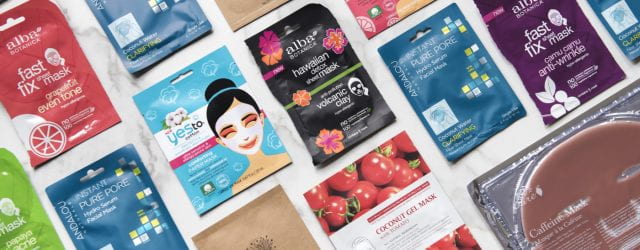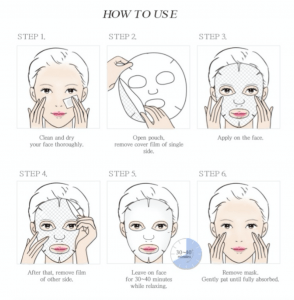Have you ever received facemasks as souvenirs when a friend or family member comes back from a holiday to South Korea?
I have… every single time.
Facemasks, or more specifically, sheet masks, are extremely popular in Singapore because of the strong Korean Beauty Industry influence it has in Singapore with brands like Etude House and Innisfree. According to Reuters, the face mask market by 2025 will amount to over $11 billion, which is a 10 per cent increase from 2018 (Reuters, 2019). Sheet masks are single-use products – with the packaging and one sheet of mask inside per packet. This means that each time we use one, we are automatically generating waste.
Caroline Jacobs-Graf, Founder of A Little Find (a platform for eco-conscious brands), states: “Sheet masks are always problematic because they have been designed as a single-use item and need to be packed in an outer sleeve that can be difficult to recycle.”
Sheet masks are single-use products – with the packaging and one sheet of mask inside per packet. This means that each time we use one, we are automatically generating waste. While they do work wonders – hydrating and moisturising our face, especially after a long day of working or studying, they do not the same to the environment. As mentioned above, they generate a lot of waste. In one packet: there’s a pouch, the mask itself, as sometimes a plastic sheet lining to keep the mask in shape. Not all of the components are recyclable and biodegradable. That means more wastes end up in our landfills and sometimes, to the ocean.
Packaging
More often than not, sheet masks come in a mix of plastic and aluminium packet – both of which are not biodegradable. Once you open the packet, there will be only one sheet of the mask, which is held to shape by a thin plastic film – which is also not biodegradable.
The Mask Itself
Next, the mask itself. Sometimes they’re made from one hundred per cent cotton, which some may think is easily compostable, and in turn, more eco-friendly. However, some may contain small amounts of microbeads that can end up polluting the ocean. In addition, cotton is a very wasteful and non-eco-friendly material as huge amounts of water and chemicals are needed in the production of cotton. Ashlee Piper, an eco-lifestyle expert, notes that a mask’s compostability is highly dependent on what’s in it. In her own research, she’s seen masks made of cotton, jute and/or bamboo, which on their own would be fine to compost. The only caveat is that if they’re soaked in non-organic, non-biodegradable ingredients, composting might not be an option (Brucculieri, 2019). Sheet masks can also be of a synthetic material like nylon, and it cannot be composted as well. Other non-compostable sheet mask materials include microfibre, a synthetic fabric made from petrochemicals and plastic.
What can we do
It is important to note that the everyday consumer probably doesn’t have the time or ability to figure out what each ingredient in their sheet masks is and whether it can be recycled, composted or neither. Hence, brands and the manufacturers should be the one taking the next step to easily provide information to consumers on the ‘life’ of the sheet mask and its components.
Additionally, we as consumers should opt for a more eco-friendly option to reduce the demand for non-eco-friendly sheet masks. One alternative would be clay masks that can come out of a glass bottle or even biodegradable masks. (See below on where to get biodegradable masks in Singapore).
Face masks take just 15 minutes to use yet many of them don’t break down for hundreds of years, or even make their way into the ocean. Let’s all be more mindful of our consumer choices!
Where can you get biodegradable masks in Singapore?
References
Reuters (2019). Skincare and the Beauty Industry. [online] Reuters. Available at: https://www.reuters.com/brandfeatures/venture-capital/article?id=56770.
Brucculieri, J. (2019). Are Your Beloved Sheet Masks Killing The Planet? [online] HuffPost. Available at: https://www.huffpost.com/entry/sheet-masks-not-environmentally-friendly_l_5c5a033ae4b09293b2092685 [Accessed 3 Nov. 2020].

